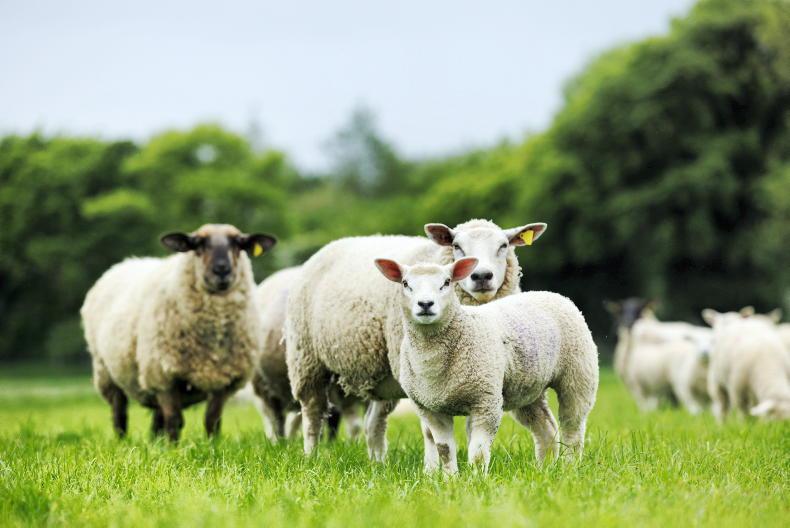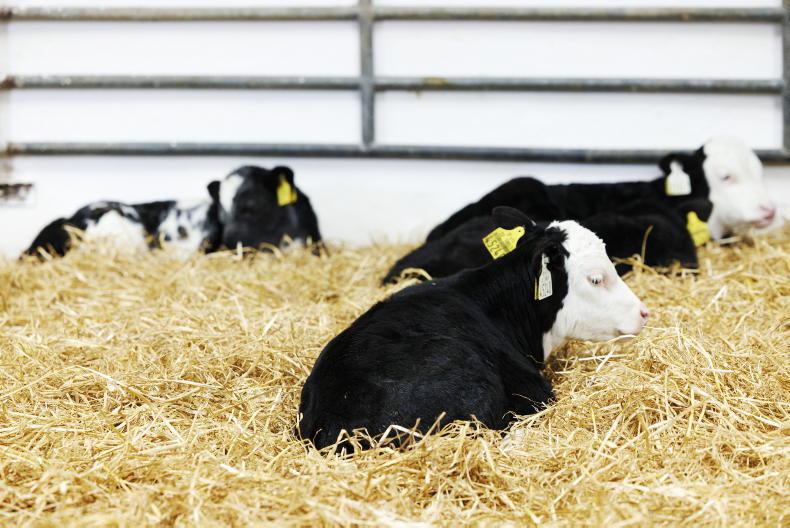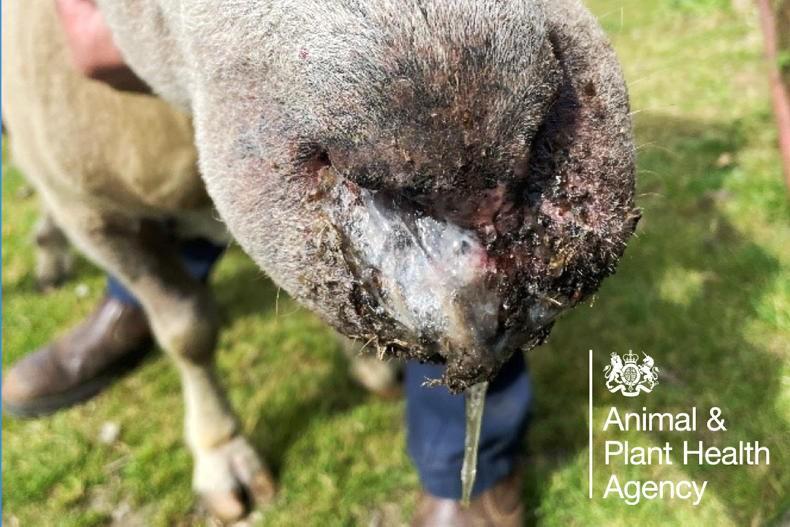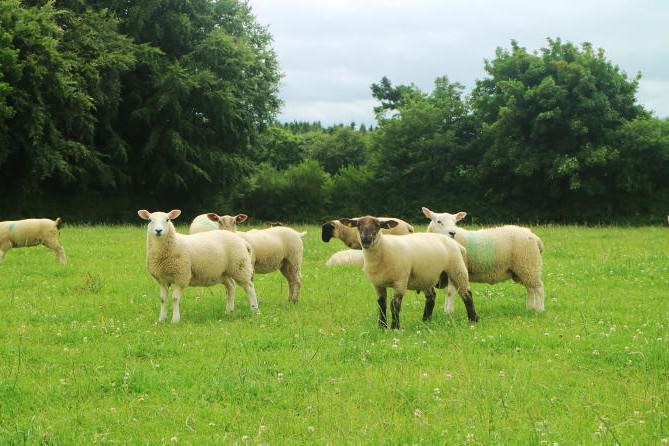Scientists at the Moredun Research Institute in Scotland are currently developing a vaccine for the control of a common stomach worm in sheep.
Dr Alasdair Nisbet from Moredun, said a prototype vaccine for the roundworm Teladorsagia has been trialled on lambs and initial results appear promising.
Speaking at an online meeting last week, Nisbet presented results from six trials, which showed vaccinated lambs tended to have lower faecal egg counts than unvaccinated lambs.
“Generally, it’s pretty good if we give lambs three doses of the vaccine and then start to challenge them,” he said.
Teladorsagia is a common roundworm found in grassland, which can lead to weight loss and diarrhoea in lambs with high infestations.
Whilst wormers are the main control method used on farms at present, the growing problem of anthelmintic resistance is making scientists explore alternative options.
The team at Moredun have recently received a five-year funding package to further develop the Teladorsagia vaccine and address issues that have arisen in the initial trials.
“The effect of the vaccine is very variable between trials, but also between lambs. That is something we are currently trying to to iron out before we can take this vaccine to commercialisation,” said Nisbet.
Other vaccines
Vaccinations for worm control is not a novel idea. For example, a vaccine for the Barber’s Pole worm, a common parasite in the southern hemisphere, was developed by Moredun scientists and is commercially available in Australia and South Africa.
“One of the limitations of any vaccine that we developed so far, is that it only protects against that species. In the field, lambs are exposed to a number of species,” Nisbet said.
“One of the challenges that we are addressing in this next five-year programme is to produce vaccines that cross-protect across multiple species. It is the gold standard that we are aiming for,” he added.
Elsewhere, research is ongoing at the University of Liverpool into a vaccine for liver fluke control and scientists at Moredun have made significant progress with a vaccine against sheep scab.
Trials on a prototype vaccine have found that vaccinated sheep have much smaller lesions and lower populations of scab-causing mites when they are exposed to the external parasite.
“It doesn’t completely protect against infestation, but by reducing scab size, we see a greater than 80% reduction in transmission of scab mites from vaccinated lambs onto clean lambs,” Nisbet said.
One in three UK ewes get abortion vaccine
Fewer than one third of all replacement ewes in the UK each year are vaccinated for enzootic abortion, according to veterinary consultant Dr Fiona Lovatt.
“We have 3.5m replacement ewes entering our national flock each year, but there is only one million doses of enzootic abortion vaccine sold,” she said during an online National Sheep Association meeting.
Lovatt strongly recommends vaccinating all replacement ewes entering a flock each year for both enzootic and toxoplasmosis abortion.
She presented figures which showed 30% of lamb losses on UK farms happen between scanning and lambing, with 52% of these due to enzootic abortion and 25% down to toxoplasmosis.
“Each one is pretty much preventable by a single vaccination. I very rarely advise giving another vaccine later on, as long as the replacements have been done continuously as they come in,” she said.
However, Lovatt acknowledged that abortion vaccines have a very short shelf life and supply disruptions are common: “We think we are going to have enough enzootic and toxo vaccines to last this year, but we don’t know if we will have a failure or problem down the line. I would suggest you should plan ahead. Make sure you vaccinate early and don’t leave it to the last minute before tupping.”
Scientists at the Moredun Research Institute in Scotland are currently developing a vaccine for the control of a common stomach worm in sheep.
Dr Alasdair Nisbet from Moredun, said a prototype vaccine for the roundworm Teladorsagia has been trialled on lambs and initial results appear promising.
Speaking at an online meeting last week, Nisbet presented results from six trials, which showed vaccinated lambs tended to have lower faecal egg counts than unvaccinated lambs.
“Generally, it’s pretty good if we give lambs three doses of the vaccine and then start to challenge them,” he said.
Teladorsagia is a common roundworm found in grassland, which can lead to weight loss and diarrhoea in lambs with high infestations.
Whilst wormers are the main control method used on farms at present, the growing problem of anthelmintic resistance is making scientists explore alternative options.
The team at Moredun have recently received a five-year funding package to further develop the Teladorsagia vaccine and address issues that have arisen in the initial trials.
“The effect of the vaccine is very variable between trials, but also between lambs. That is something we are currently trying to to iron out before we can take this vaccine to commercialisation,” said Nisbet.
Other vaccines
Vaccinations for worm control is not a novel idea. For example, a vaccine for the Barber’s Pole worm, a common parasite in the southern hemisphere, was developed by Moredun scientists and is commercially available in Australia and South Africa.
“One of the limitations of any vaccine that we developed so far, is that it only protects against that species. In the field, lambs are exposed to a number of species,” Nisbet said.
“One of the challenges that we are addressing in this next five-year programme is to produce vaccines that cross-protect across multiple species. It is the gold standard that we are aiming for,” he added.
Elsewhere, research is ongoing at the University of Liverpool into a vaccine for liver fluke control and scientists at Moredun have made significant progress with a vaccine against sheep scab.
Trials on a prototype vaccine have found that vaccinated sheep have much smaller lesions and lower populations of scab-causing mites when they are exposed to the external parasite.
“It doesn’t completely protect against infestation, but by reducing scab size, we see a greater than 80% reduction in transmission of scab mites from vaccinated lambs onto clean lambs,” Nisbet said.
One in three UK ewes get abortion vaccine
Fewer than one third of all replacement ewes in the UK each year are vaccinated for enzootic abortion, according to veterinary consultant Dr Fiona Lovatt.
“We have 3.5m replacement ewes entering our national flock each year, but there is only one million doses of enzootic abortion vaccine sold,” she said during an online National Sheep Association meeting.
Lovatt strongly recommends vaccinating all replacement ewes entering a flock each year for both enzootic and toxoplasmosis abortion.
She presented figures which showed 30% of lamb losses on UK farms happen between scanning and lambing, with 52% of these due to enzootic abortion and 25% down to toxoplasmosis.
“Each one is pretty much preventable by a single vaccination. I very rarely advise giving another vaccine later on, as long as the replacements have been done continuously as they come in,” she said.
However, Lovatt acknowledged that abortion vaccines have a very short shelf life and supply disruptions are common: “We think we are going to have enough enzootic and toxo vaccines to last this year, but we don’t know if we will have a failure or problem down the line. I would suggest you should plan ahead. Make sure you vaccinate early and don’t leave it to the last minute before tupping.”










SHARING OPTIONS